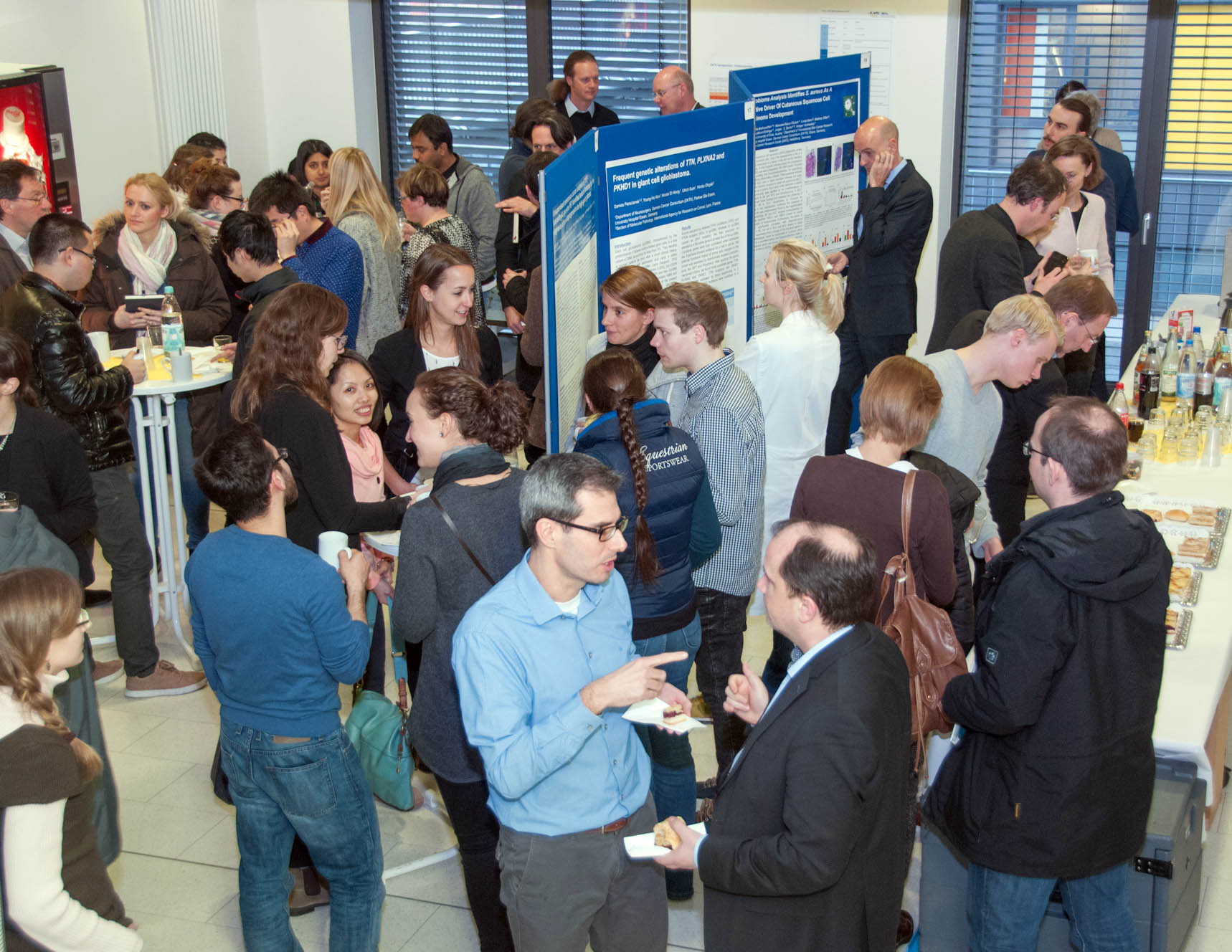05/02/2017
Print PageSite Symposium DKTK Essen/Düsseldorf: Cancer research for patients

In his welcome address, Professor Jochen A. Werner, Medical Director and Chairman of Essen University Hospital, said that the establishment of the DKTK’s Essen/Düsseldorf translational research center, in collaboration with the German Cancer Research Center (DKFZ) in Heidelberg, had succeeded in building an important bridge between basic and clinical cancer research.
Two newcomers to the DKTK partner site, Professor Björn Scheffler and Dr Barbara Grüner, also presented scientific papers: Dr Barbara Grüner, who has been running the DKTK Junior Working Group on Molecular Tumor Pathology at Essen University Hospital since 1 January 2017, presented her newly developed high-throughput screening method for pancreatic cancer. Instead of testing lots of active substances individually in mice, the new method allows around 100 cell samples to be treated with different active substances in parallel. The impacts on metastasis can be investigated in vivo using just a few mice. This reduces the number of animal experiments required, cuts costs and speeds up the time to results.
Professor Björn Scheffler, who has been DKTK Professor of Translational Neurooncology at Essen University Hospital since January 2016, presented his program for identifying new target structures for the treatment of brain tumors. His working group has developed a test system with patient-specific cell cultures from the invasive region of brain tumors (glioblastoma) in order to be able to research new approaches in conditions that mirror the patient’s brain as closely as possible.
One part of the symposium program was devoted exclusively to the numerous clinical and preclinical projects that the Essen/Düsseldorf site has successfully initiated and developed over the past two years via the DKTK’s Joint Funding Program.
Professor Martin Schuler, the symposium host, who is spokesman for the DKTK’s Essen/Düsseldorf site, was delighted by the high level of interest in the event, and in the subsequent poster session: “The Essen/Düsseldorf site sees itself as a source of ideas for translational cancer research. This is particularly clear from the numerous papers by young researchers that have been presented here today.” According to Schuler, the new DKTK working groups have finally arrived on site: “The construction work in the new laboratories is complete. Now we can look forward to exciting collaboration with the researchers who have joined us.”